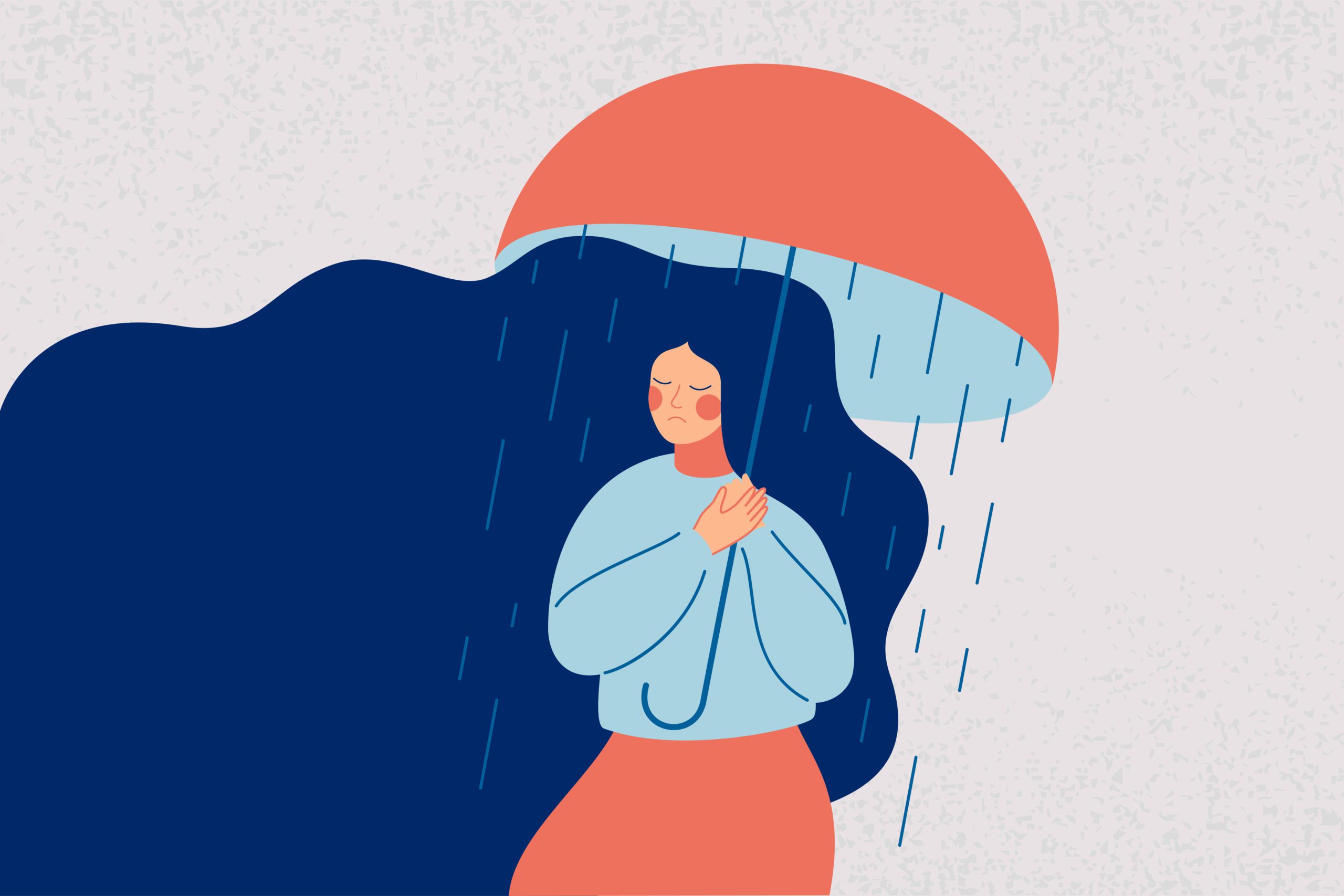Aug. 30 is National Grief Awareness Day. It’s not a day we “celebrate” but rather a day we are reminded how important it is to support loved ones who are grieving.
The purpose of the designated day is threefold:
- Raise awareness of the ways different people cope with loss,
- Provide a way to share stories and resources with those dealing with loss,
- Remind people to support those who are grieving.
How different people cope
Many people are experiencing grief right now, which can be caused by a loved one’s death. Grief also can happen in response to drastic changes in daily routines and changes to a comforting way of life.
According to the Centers for Disease Control and Prevention, some people experienced multiple losses during the COVID-19 pandemic and are now grieving.
Grief is more than just temporary sadness. It is defined as deep sorrow, often caused by someone’s death. It’s the acute pain that accompanies loss. Losing a spouse, parent or sibling can lead to intense grief.
Most people are aware of the seven emotional stages of grief: shock, denial, bargaining, guilt, anger, depression and acceptance. Although many people admit feeling a sense of numbness immediately following a loss, there is no real order to the grieving process. Every person is different, and everyone grieves in their own way and in their own time.
Central Florida resident Leslie Hudson Russell lost her mom a year ago. She said even after 12 months, it hasn’t gotten easier.
“I still feel lost and so sad,” Russell said. “I call her cell phone to hear her voice and include her phone on group texts because it makes me feel connected to her.”
Russell received this advice from a friend, which helped her cope with the grief of losing her mom: “I focus on all the things I did in the past year that would make my mom proud.”
Sharing stories of grief
At Growing Bolder, we have met dozens of people, such as Russell, who have suffered through grief. Here are some of their words of wisdom and encouragement on this National Grief Awareness Day.
Marshall Ulrich
Marshall Ulrich is a 70-year-old “ultramarathoner” known for running in extreme endurance events and smashing records.
It was grief that first started Ulrich on his running journey. When his wife was diagnosed with cancer at 28, and died at the age of 30, Ulrich discovered running had a healing effect on his mind and body. When he had trouble picking up the pieces of his life, he found the road was the only place he could find peace.
Ulrich told Growing Bolder that running was a metaphor for learning to push past the limits in his mind.
“We are all capable of so much more than we ever imagined,” Ulrich said, “especially later in life.”
Kelly Kowall
Kelly Kowall’s son, SPC Corey Kowall, was killed during a combat mission in Afghanistan at the age of 20. As part of her grieving process, Kowall created My Warrior’s Place, a retreat center near Tampa for veterans, first responders, and other families who have lost loved ones in the military.
Kowall told Growing Bolder she knows her hard work was worth it when a veteran comes to her and says, “If it wasn’t for this place, I don’t think I’d be here today.”
“You can’t put a price on that,” Kowall said.
Steve Mazan
In 2005, Steve Mazan was diagnosed with inoperable liver cancer and was told he had five years to live. As a professional comedian, his biggest career goal to that point was to perform on the “Late Show with David Letterman.” Suddenly faced with his own death, he knew his “someday” needed to be “today.”
Getting a cancer diagnosis requires a grieving process, and part of Mazan’s process became achieving his dream of getting on Letterman’s show. His journey eventually became a book and an inspirational story encouraging everyone to live for today.
“The best part of all of this was getting letters and emails from other people who started putting their dreams into practice,” Mazan told Growing Bolder. “They were inspired to stop saying ‘someday’ and start making things happen ‘today.’”
By the way, after a lot of work, Mazan did make it onto the Letterman show.
Laura Pita
Laura Pita lost her mom, Emmy, to cancer at the same time her 7-year-old son, Josh, was diagnosed with leukemia. It was a one-two punch that devastated Pita and took the wind out of her sails.
To keep herself busy during the long hospital visits with her mother and son, Pita began making a tutu for her niece. The day she finished it was the day her mom died. From that point, she started making tutus for the little girls on Josh’s cancer floor. Out of that simple idea, something wonderful was born.
Pita processed her grief by starting Emmy’s Heart, a grassroots campaign that brings smiles to children in hospitals around the country. By passing out homemade tutus and capes, Pita hopes to spread joy to families who are dealing with grief.
“Josh’s cancer affected our whole family,” Pita told Growing Bolder. “It was a harsh reality when we had to cancel playdates and other outings so as not to compromise Josh’s fragile immune system.”
Giving back is what helped Pita manage her pain.
Belenda Cypress
Belenda Cypress woke up on the morning of her 45th wedding anniversary ready to celebrate one of the greatest moments of her life. Instead, it ended up being one of the worst days of her life.
Cypress was shocked and overcome with grief when her husband, Jerry, died of a heart attack on their anniversary. She told Growing Bolder that she couldn’t understand why he was taken from her during the peak of their lives. There was a lot she learned through her grieving process.
“I realized it was my time to grow into someone that I didn’t know I would, or could, become,” Cypress said.
She took over her husband’s company and started writing poetry to help her process her grief and sadness. Cypress has learned to move forward by encouraging others who are hurting.
Supporting others on National Grief Awareness Day
According to the American Psychological Association, most people recover from loss on their own with the passage of time, along with social support and healthy habits.
Here are a few ideas on how to help a loved one through their grieving process.
- Share the sorrow. Allow them to talk about their feelings of sadness and share memories of the good times.
- Don’t offer false comfort. Don’t say, “It was for the best,” or “You’ll get over it.” Instead, listen and keep your comments positive and simple.
- Offer practical help. Cook them a meal, clean their house, run errands, do things they don’t have the energy to do.
- Be patient. It can take time to heal from a major loss.
- Encourage professional help when needed. Recommend professional help if you feel they can’t cope alone.
Giving yourself permission to grieve on National Grief Awareness Day
Experiencing grief when a loved one dies is natural and normal. In fact, according to Mental Health America (MHA), coping with death is vital to your mental health. The best thing you can do is give yourself permission to grieve, and here are some suggestions to help.
7 healthy ways to cope with pain:
- Find caring people. Seek out a relative or friend who understands what you’re going through. If you don’t know someone personally, find a support group of others experiencing a similar loss.
- Express your feelings. Talk about how you feel.
- Take care of your health. Don’t forget to eat and sleep and be careful of dependence on medication or alcohol.
- Accept that life is for the living. Don’t dwell on the past; focus on today.
- Postpone major life changes. Give yourself time to adjust to the loss; avoid moving, remarrying, changing jobs, or having a baby.
- Be patient. It takes time to absorb a major loss and to adjust to your changed life.
- Seek help if needed. It is a sign of strength, not weakness, to ask for outside help if you feel your grief is too much to bear alone.
Source: Mental Health America















